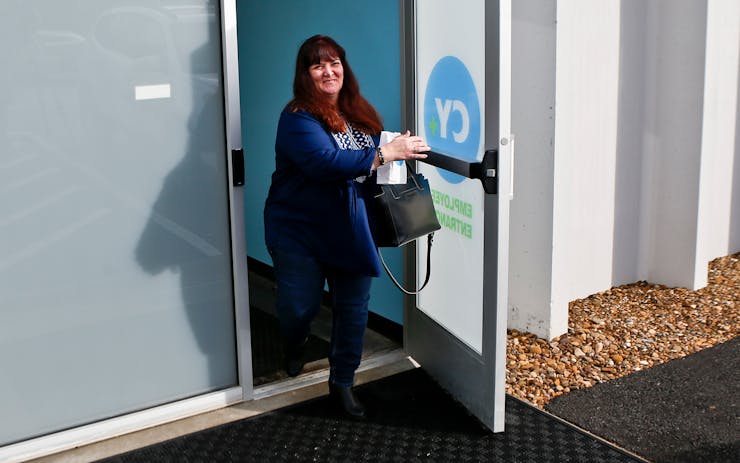More than 9.5 million Pennsylvania adults should not be subject to arrest for personal amounts of pot, the state’s Auditor General Eugene DePasquale concluded this week. Rather, he said, the state should tax and regulate the sale of cannabis and realize hundreds of millions of dollars in revenue.
'It is time for Pennsylvania to realize the benefits from regulating and taxing marijuana.”
DePasquale, a popularly elected, independent reviewer, released a special report Thursday titled ‘Regulating and Taxing Marijuana.’ The report examined the potential revenue opportunities offered by legalization. “It is time for Pennsylvania to realize the benefits from regulating and taxing marijuana,” DePasquale concluded.
The report found that 21,000 adults were charged with marijuana offenses in Pennsylvania last year, a waste of time and money in a state where polling indicates that 56 percent of voters support legalization. The state forfeits an estimated $581 million in retail cannabis sales taxes to the black market every year.
“Across the U.S., state after state is regulating and taxing marijuana,” the report stated. “This move reflects an observable shift in public perspective on adult use and on increasing acknowledgment of the financial and public health benefits associated with regulation and taxation.”
There are thought to be 800,000 regular cannabis consumers in Pennsylvania who each spend about $2,000 a year, on average, on the botanical drug.Looking for Legal Medical Cannabis in Pennsylvania?
$581 Million in Annual State Revenue
Pennsylvania has had legal medical cannabis since 2016, and adult use decriminalization in cities like Pittsburgh and Philadelphia. But it’s not enough, DePasquale wrote:
“Stopping at decriminalization would be a costly mistake for the commonwealth, potentially leaving more than $581 million in annual tax revenue on the table. That revenue could help balance the state budget and provide business and job opportunities — and the way to access it is for Pennsylvania to allow the cultivation, sale and purchase of marijuana. Pennsylvania’s budget challenges are now a consistent factor in all state policy decisions. Taxing marijuana offers a rare glimmer of fiscal hope, providing a way to refocus the state budget process away from filling its own gaps.”
In a press conference Thursday with DePasquale, Pittsburgh mayor Bill Pedato said cannabis prohibition is not only unprofitable, but immoral.
“This issue not only has a revenue side to it, but it also has a personal side to it — people whose lives are thrown out of balance because of the penalization of cannabis not being legal, people who are not able to have access to housing or access to jobs or access to an opportunity in life,” Peduto said, according to reports.
DePasquale envisions steep taxes starting at 35 percent on cannabis to benefit the state’s most vulnerable, instead of prey on them.
“Legislators could focus on increasing funding for pre-K initiatives, veterans’ mental health access, and uninsured or underinsured at-risk children,” his report said. “With marijuana legal in nearby Vermont, Massachusetts and the District of Columbia, and with New Jersey, New York, Virginia, Connecticut and Delaware opening pathways to regulation, it’s imperative that Pennsylvania not lose its potential customers to other states’ markets,” the report added.
“I am not suggesting that this is something that has no drawback,” DePasquale said, according to news reports. “The reason why this is a weighted public policy issue is because there are pros and cons to it. If it was all pro and no con, it probably would have been decided decades ago.”
Pennsylvanians return to the polls this fall. The swing state went for President Donald Trump in the 2016 election, but is currently leading the country in young voter registrations, and is a key battleground in the coming November midterms.





